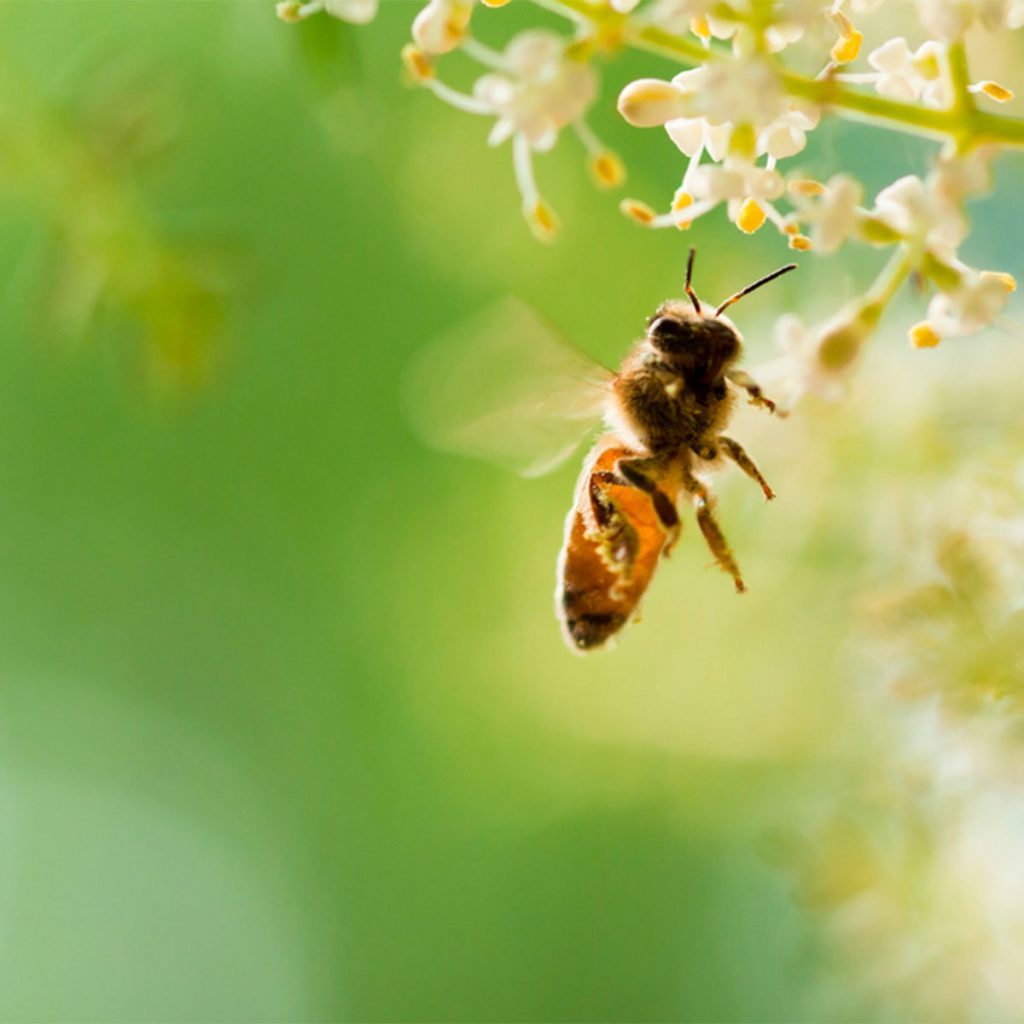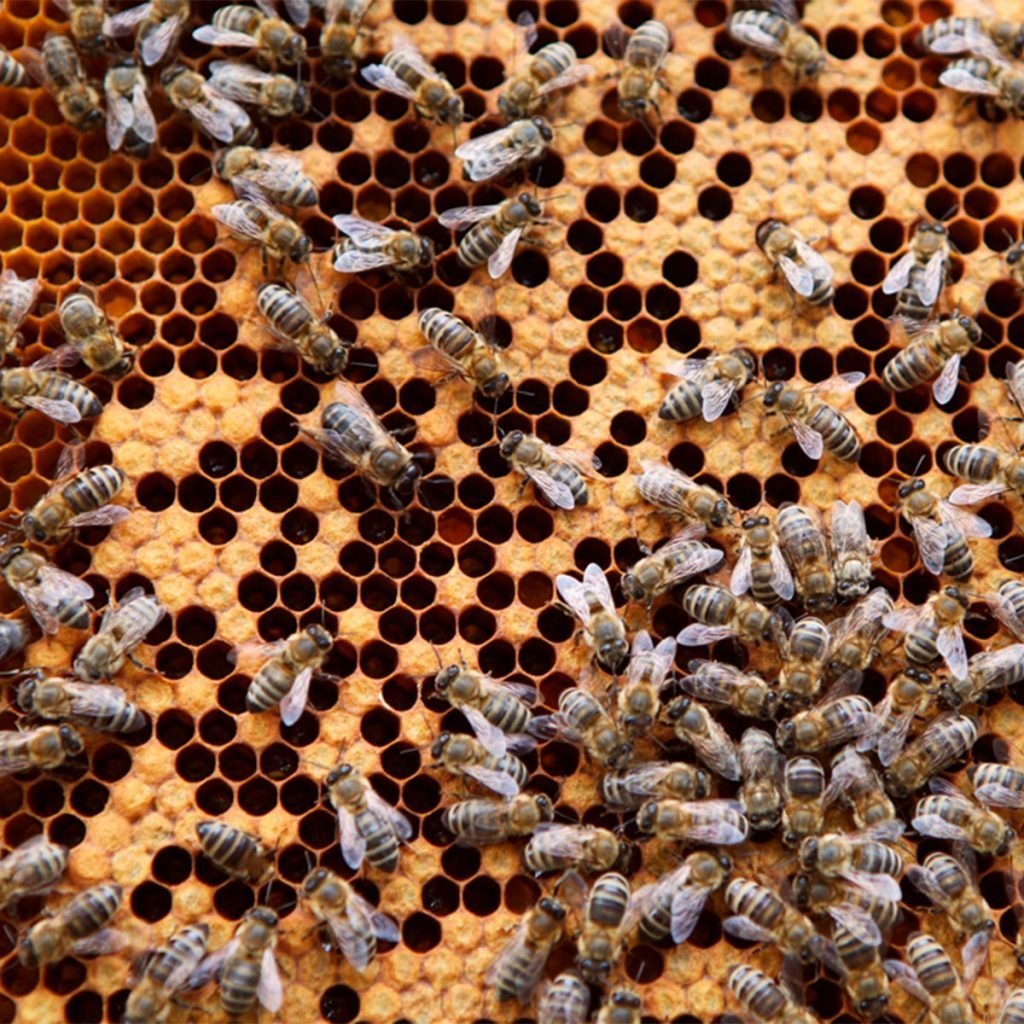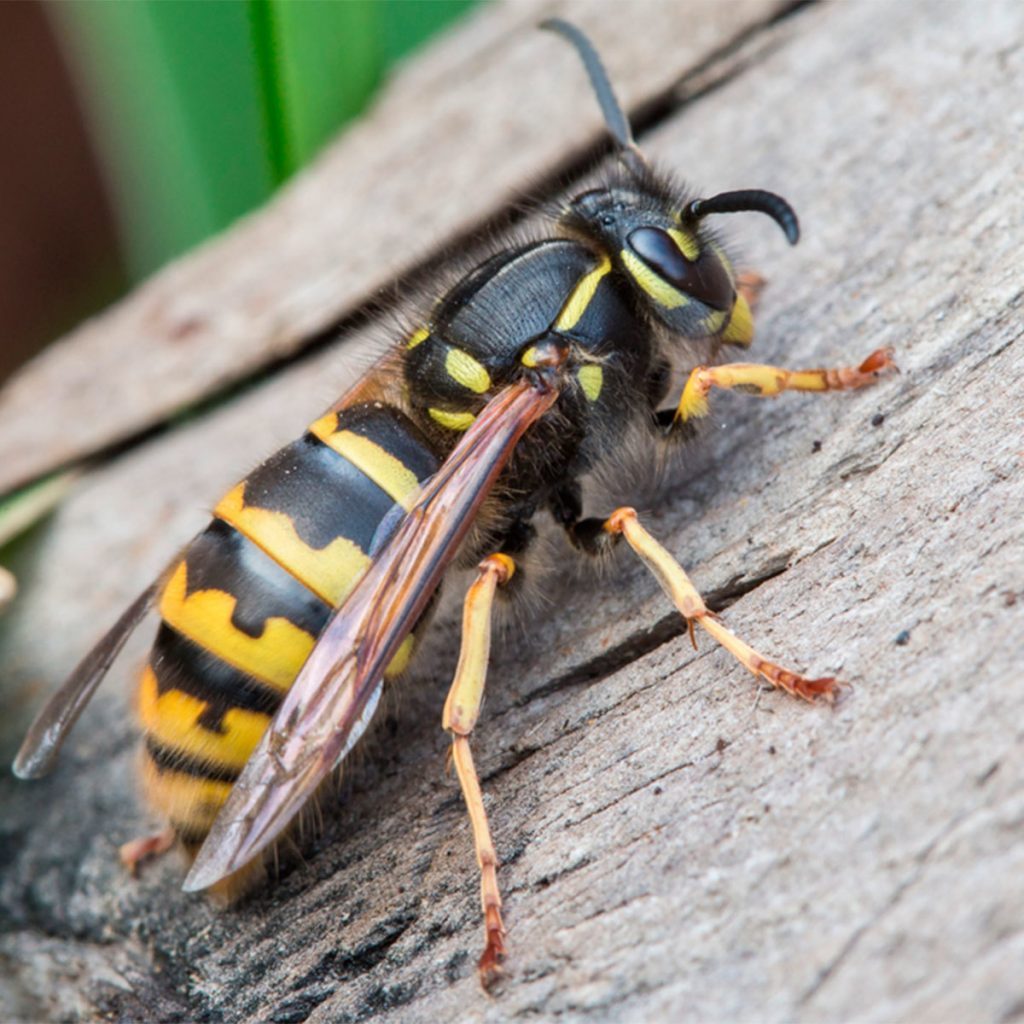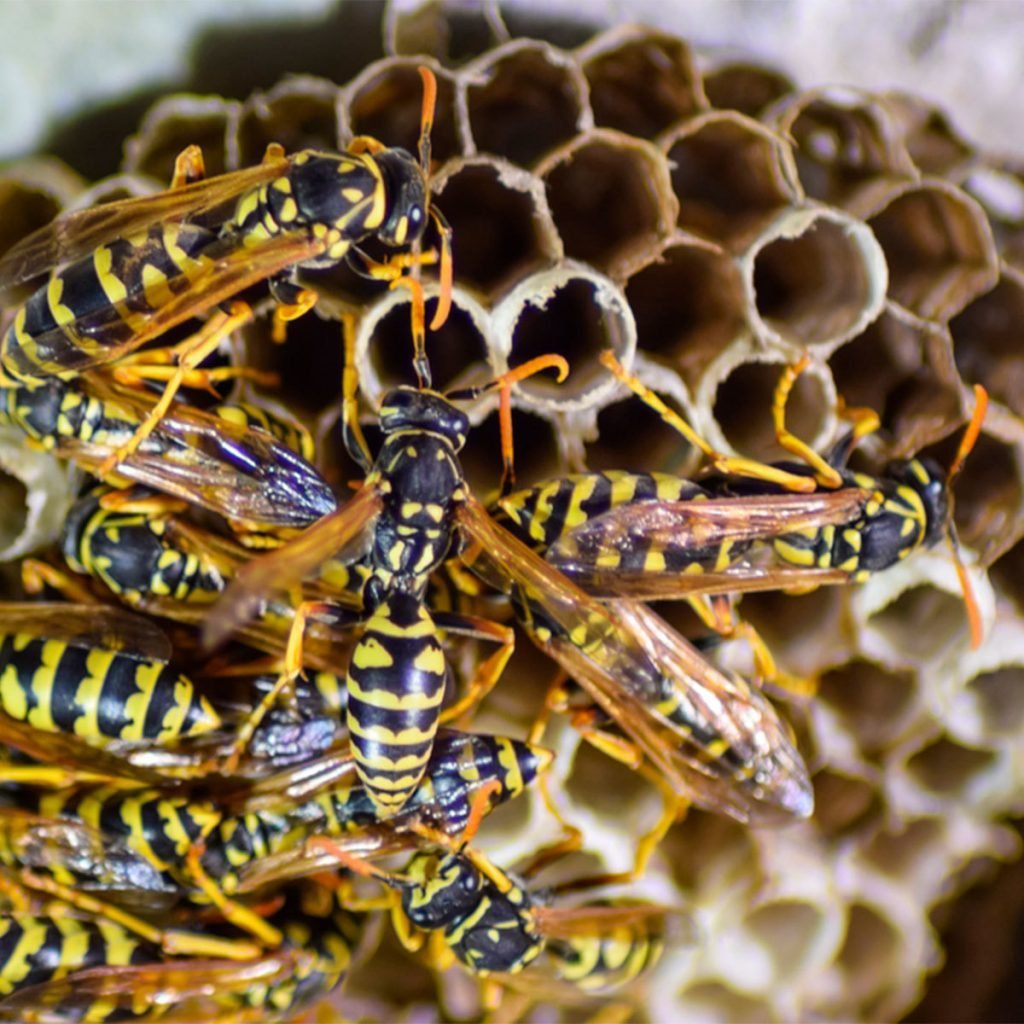How to Deter Bees and Wasps (And Identify Which is Which)
Updated: Jun. 29, 2021Bees are generally harmless and healthy for your yard. Wasps tend to be more aggressive and dangerous than bees.

Identifying Bees
There are two parts to bee identification: appearance and behavior. While bees and wasps can be very, very similar, there are usually ways of telling them apart. Bees tend to be rounder (with the bumblebee as an extreme example). While wasps may have hair, bees are the species that are truly fuzzy when you look at them up close. The honey bee is one of the few bees that has a more wasp-like shape, but even they are fuzzier around the edges.
Also, it’s important to note that bees actively seek out and pollinate flowers while they are gathering food. Many wasps are not so obsessed with pollen – solitary wasps, in particular, have a very different diet. So if the insects spend most of their time digging through flowers, put another mark in the bee column.
When Bees are Dangerous
Almost never! A few bees around is a good sign—it means your garden is healthy and attractive to these honey makers. If you want to deter bees and wasps, you can plant fewer flowers and focus more on non-flowering ground covers. However, there are really only two points where bees may be dangerous:
1. When a hive is too close for comfort.
A beehive is great for beekeepers, but not so great for pets and families. If there’s a beehive in a nearby tree or on your house itself, it’s probably too close. Bees will get aggressive if they have to defend their hive, so it’s best to stay away. If you have a new hive, look up local beekeepers and see if they will stop by and remove it. Beekeepers are frequently interested in new swarms or hives, and can take them off your hands or at least offer advice on what to do next.
2. When certain bees get aggressive.
This is quite rare, but some species like the Africanized Honey Bee (and almost no other type of bee) have been known to aggressively attack and kill people. If these bees have been spotted in your region, there will be government and news reports showing you where they are, how to tell if it is a problem and what to do next.
Identifying Wasps
The average wasp has only sparse, thin hair and a thinner, longer body that tends to give it a more “dangerous” appearance, often with dark markings and less yellow coloring than bees. Wasp behavior is also an important clue to identifying them. If you are wondering how to deter bees and wasps and find that the insects are following you around and seem aggressive, you probably have a wasp issue. Wasps tend to attack other insects for food or gather materials for their nests. Some communal species do eat nectar, but they don’t tend to actively pollinate the way that bees do. However, like bees, they will often stop by to investigate new sources of food.
When Wasps are Dangerous
Wasps tend to be far more aggressive and much less useful than bees. You don’t want to see them around your yard, especially if it seems like they keep coming back. Here are two cases where you should take action to avoid danger. Remember, while honey bees can only sting once before they die, wasps and hornets can sting repeatedly!
1. When their underground burrows become numerous.
There are many types of wasps, and species common in North America often dig small burrows underground for their eggs and homes. A few of these solitary underground nests aren’t a problem, because they usually only house one wasp at a time. However, a whole set of burrows is a problem—you don’t want to run over them with a lawnmower! Even a few burrowing wasps may be a problem if you have a play area or sandbox for kids nearby. If they are becoming a problem, call pest control for advice on how to deal with them or plant more turf.
2. When communal wasps start building nests.
Other wasps are more communal and will actively build nests. This is a problem because wasps love to make nests in eaves or under decks, ruining your outside space. If it’s a small, relatively new nest that is easy to reach, consider buying some wasp spray and going out at night (when the wasps are sluggish) to spray it down. If the nest is larger and there are many wasps around, contact pest control instead.
Here are some tips on what repels bees.







